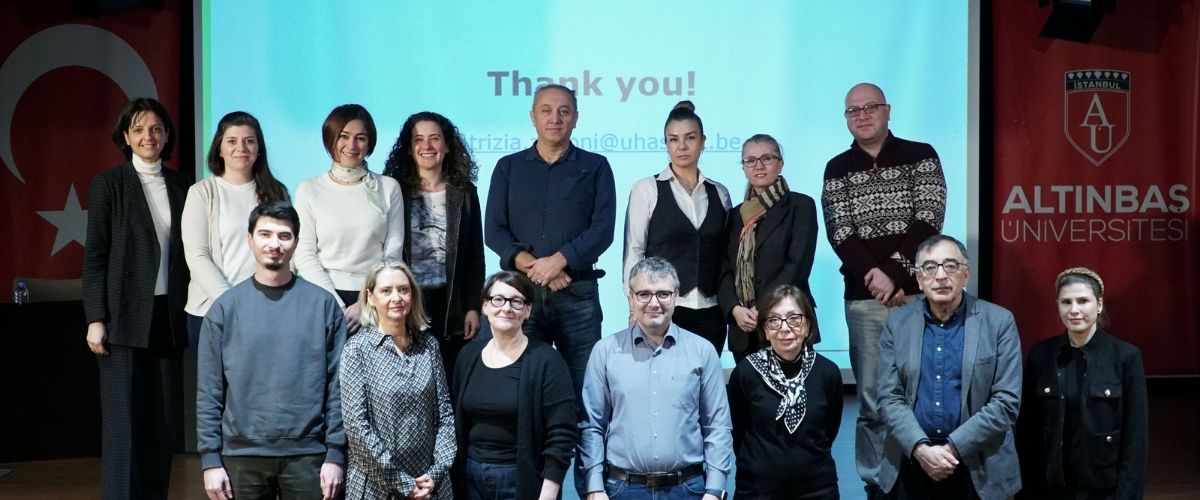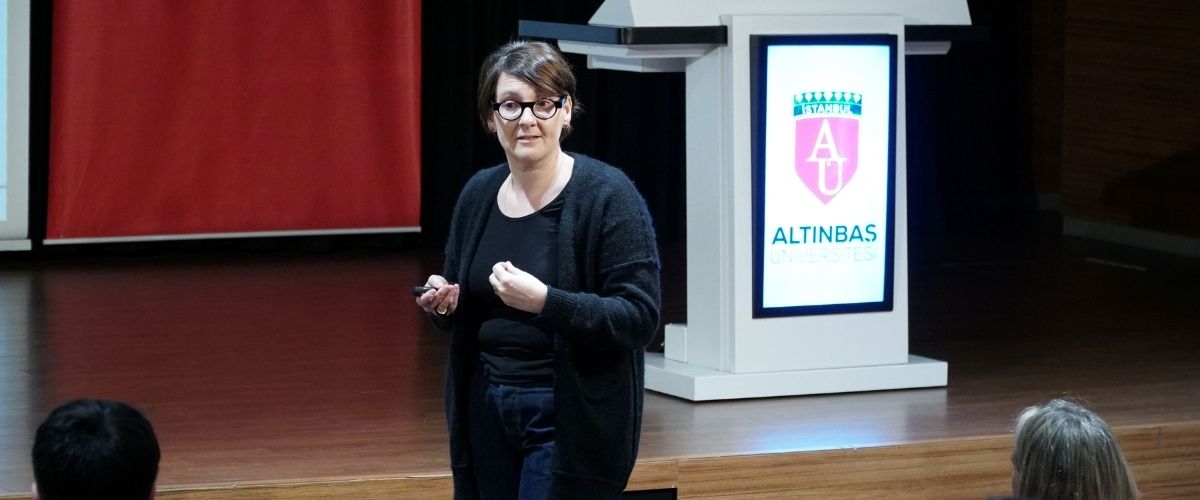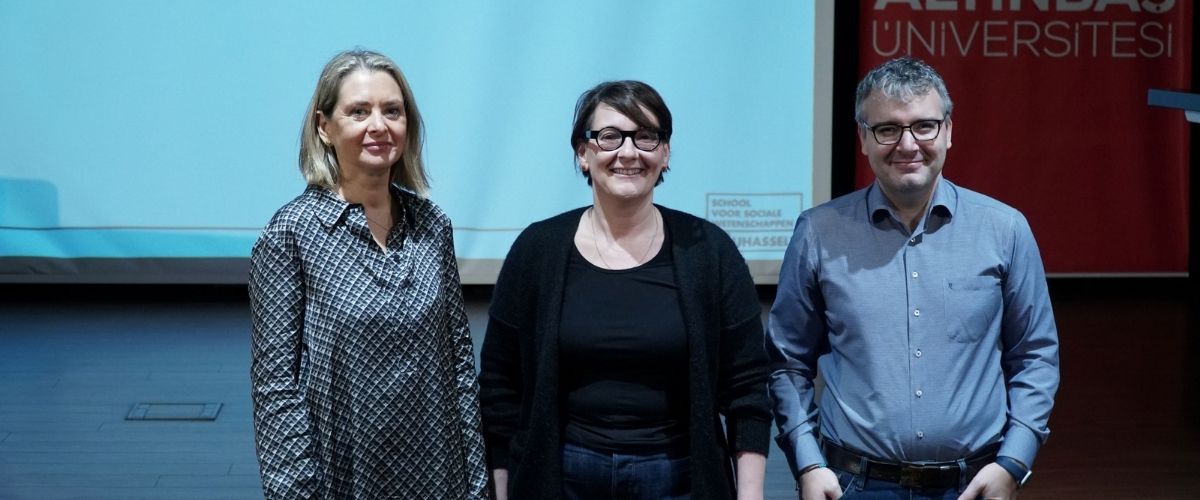Can platform economics offer a solution to the hidden discrimination of algorithms?
Altınbaş University Faculty of Business Administration Dean Prof. Dr. Zeynep Özsoy hosted a seminar on “Algorithmic Organizations and Diversity”.
Artificial intelligence also learns the prejudices that exist in society. Artificial intelligence-supported platforms such as Facebook and Google affect working life with these prejudices. In the seminar organized at Altınbaş University, the positive and negative effects of algorithms in the business world were discussed. The seminar titled “How does algorithmic organizing redefine work, diversity and its value?” was hosted by Prof. Dr. Zeynep Özsoy, Dean of the Faculty of Business Administration, and the guest of the seminar was Professor Patrizia Zanoni, who has important works in the field of Organization Studies at the Faculty of Social Sciences of Hasselt University. Zanoni is particularly known for her work on diversity management in organizations. Prof. Zanoni conducts research on how gender, ethnicity and other identity differences are systematically reproduced in the world of work.
“Diversity in the business world is not limited to discrimination between individuals”
In her presentation, Patrizia Zanoni stated that diversity in the business world is not limited to discrimination between individuals, but rather organizational systems structure diversity. Zanoni said, “Diversity is not just a matter of individuals' identities. Diversity is fed by a deep systemic structure of how tasks, competencies and wages are defined in capitalist organizations.”
“Artificial intelligence algorithms reproduce prejudices”
Zanoni also talked about how digital technologies and artificial intelligence algorithms are changing the way differences are organized in the business world. He gave examples of how the algorithms of big tech companies like Facebook and Google reproduce inequalities that existed in the past. Zanoni made a striking analysis of the role of algorithms in the world of work, noting that these AI-powered structures are not only a technological tool, but also a critical actor in the reproduction of prejudices.
Zanoni explained that in their research, they found that people miss out on job opportunities on digital platforms due to factors related to identity differences. She explained that Facebook and Google algorithms prevent women from seeing certain job postings, with job postings for high-paying positions often going to men and less attractive jobs going to women. “Algorithms learn from historical data, and if that data contains inequalities, algorithms perpetuate those inequalities,” Zanoni said, emphasizing that such examples show that algorithms are far from neutral and are shaped by man-made biases. Emphasizing that the media is often full of stories about algorithms increasing discrimination, Zanoni said:
“For example, Facebook ads are known to offer different jobs based on gender. Women have encountered fewer senior job ads than men. Algorithms learn from past data, and since this data often contains inequality, it reproduces inequalities. This makes it difficult for algorithms to create social equality. However, these examples are usually related to data coming from open systems such as the internet. The situation can be different with closed data systems within an organization. Companies can control their own data sets and create algorithms based on this data. This can create opportunities. Therefore, analyzing the impact of the platform economy and digital technologies on employee-employer relations has become an important area of research for me. The platform economy is not only a technological but also a social transformation process. This transformation plays a critical role in reproducing or breaking inequalities.”
Can the Platform Economy be a hope for equal opportunity and inclusion?
Zanoni also commented on criticism of the concept of diversity as a “business opportunity” in the business world. He noted that diversity can be defined by some as an economic value rather than a human right. “This approach of the capitalist system can create an opportunity for workers to reclaim their values,” he said. Zanoni said that despite the biased nature of algorithms, they offer the potential for equal opportunity and inclusion. For this, he emphasized the functionality of digital platforms that develop databases with their own data without bias.
He pointed out that the European Commission sees the platform economy as a new way to increase labor force participation and inclusion. Noting that the collaborative economy and digital work platforms create new sources of income for individuals who are excluded from traditional employment models, Zanoni said that work platforms have the potential to provide economic opportunities for people who cannot leave home, those living in rural areas, people with disabilities and workers in developing countries. However, he also pointed out that platforms based on a wider workforce working only in task-based temporary jobs in greater competition create the need for legal regulations on issues such as wages and social security.
Zanoni emphasized that digital technologies, when designed fairly, can increase economic equality and social inclusion. However, to achieve this goal, algorithms must be carefully regulated and companies' data policies must be transparent.




